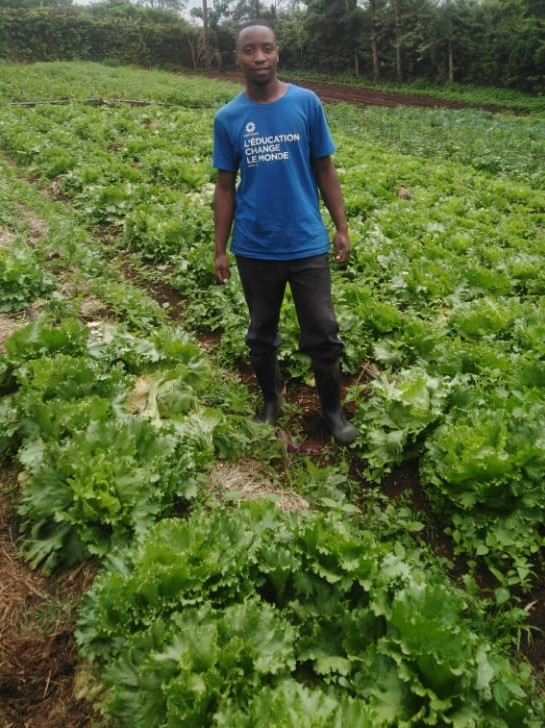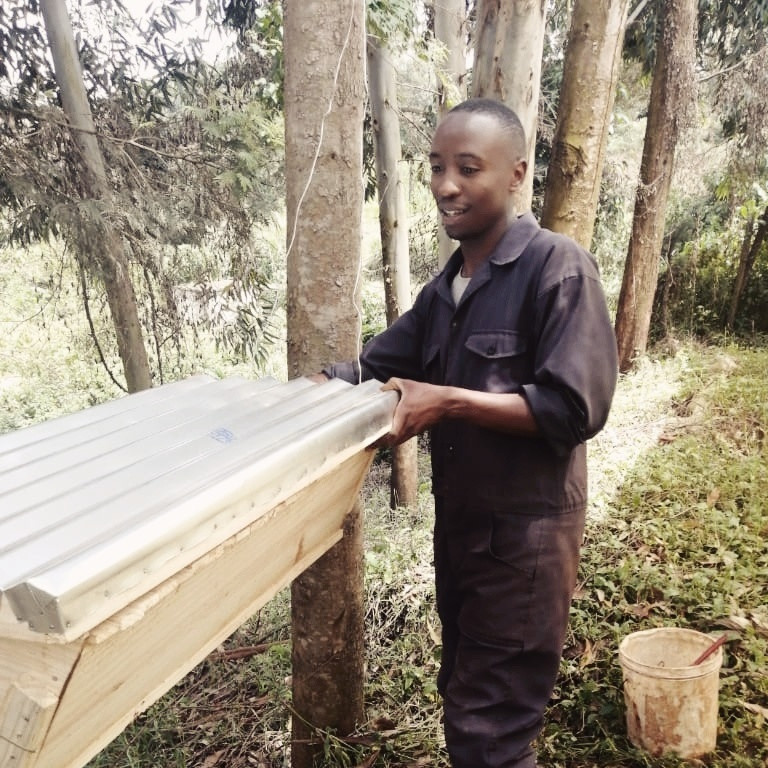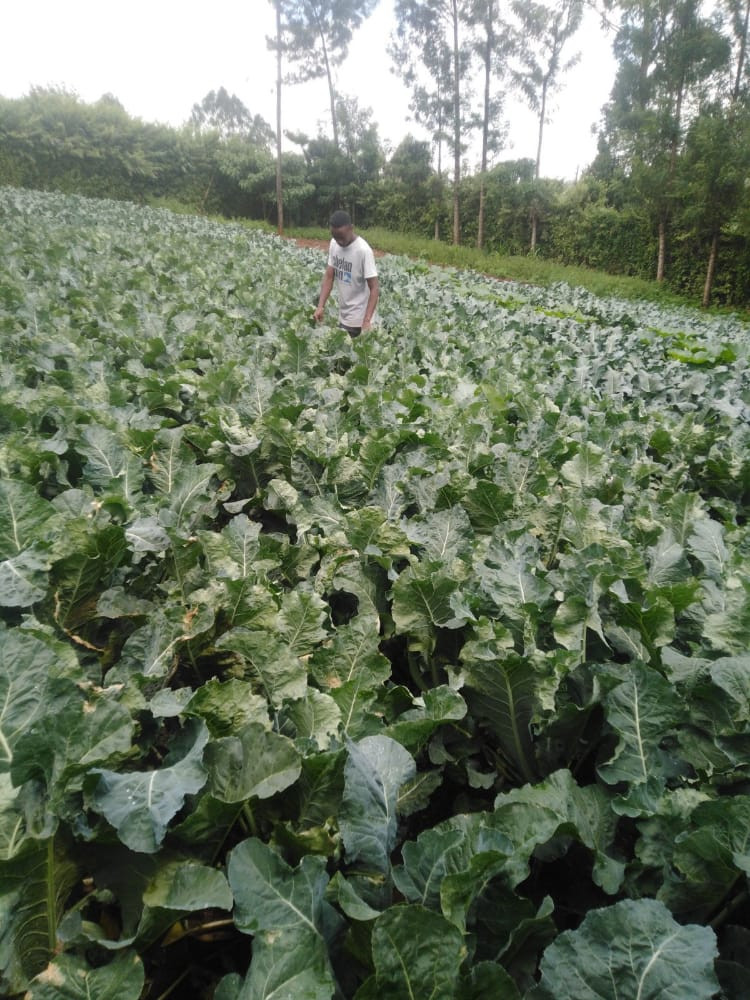Eric Wanjohi is his own boss, and he is enjoying every bit of it as he learns the ropes on the job.
Well, to be his own boss, the 24-year-old took a path less trodden by many youth, which is becoming a farmer.
The final year undergraduate crop science student at the University of Nairobi grows various horticultural crops on one-acre in Kikuyu, Kiambu County.
“I grow tomatoes, capsicums, broccolis, cauliflowers, spinach, collard greens (sukuma wiki), beetroots, coriander, cabbages and indigenous vegetables such as managu, terere and kunde,” he offers.
He was inspired to venture into farming by his parents who are dairy farmers, but he chose his own path.
“I opted to be different from my parents, and went for crop farming. But my parents were supportive, as they loaned me money for capital, which I added to my own savings to start,” he says.
Wanjohi started farming in May 2019 by growing cabbages on quarter-acre that his parents had leased and has since expanded the venture to an acre, leasing another half and further utilising the family’s half-acre.
On his farm, he has embraced technology where he uses irrigation systems to supply water to the crops.
“On one section, I use drip irrigation and on another, the sprinkler system. Tomatoes and capsicums are under greenhouses. Attending the University of Nairobi’s College of Agriculture and Veterinary Science has helped me gain knowledge on how to install irrigation and greenhouse systems myself," says Wanjohi, who was to graduate this year but due to Covid-19 pandemic, he does not see this happen.
He harvests 30-50kg of spinach, tomatoes 200-500kg and 200kg of broccoli and cauliflower every week earning at least Sh30,000 a month profit.
His main buyers are neighbours, traders at local markets and customers who come through referrals.
"The locals are frequent buyers of cabbages, indigenous vegetables and carrots. I recently embraced digital marketing where I sell through Mkulima Young app, WhatsApp groups and social media. I was introduced to Mkulima Young by friends online and this has increased my market base," says Wanjohi.
Beside vegetables farming, Wanjohi has moved to keeping bees and fruit farming, in particular growing strawberries, two ventures that complement each other.
"I currently have 120 strawberry plants which I harvest and sale to a bakery in Kikuyu town. I have also acquired beehives to try and diversify income," Wanjohi explains.
But all is not rosy. His challenges include having difficulties in ferrying produce to the market or buyers accessing him due to poor road network.
“During the rainy season, buyers have a problem accessing the farm. We carry the produce manually using wheelbarrows and carts to the main road, which increases our costs."
His target is to be a major supplier of fresh vegetables in the county and even the country.
He advises young people to embrace farming fully and not do it as a second option, when they have failed to get a white collar job.
“Don't follow what everyone is doing or what is published since failures are not advertised, start with what your area needs and you won’t fail to grow from there. Make records to monitor progress. Vegetable farming is a great idea of investment, at the end of the day people will always have to eat and the population is growing,” he says, adding one should do market research, start small and try partnerships, as he has partnered with friends in the value chain.
To connect with Eric and buy his farm produce, click here



